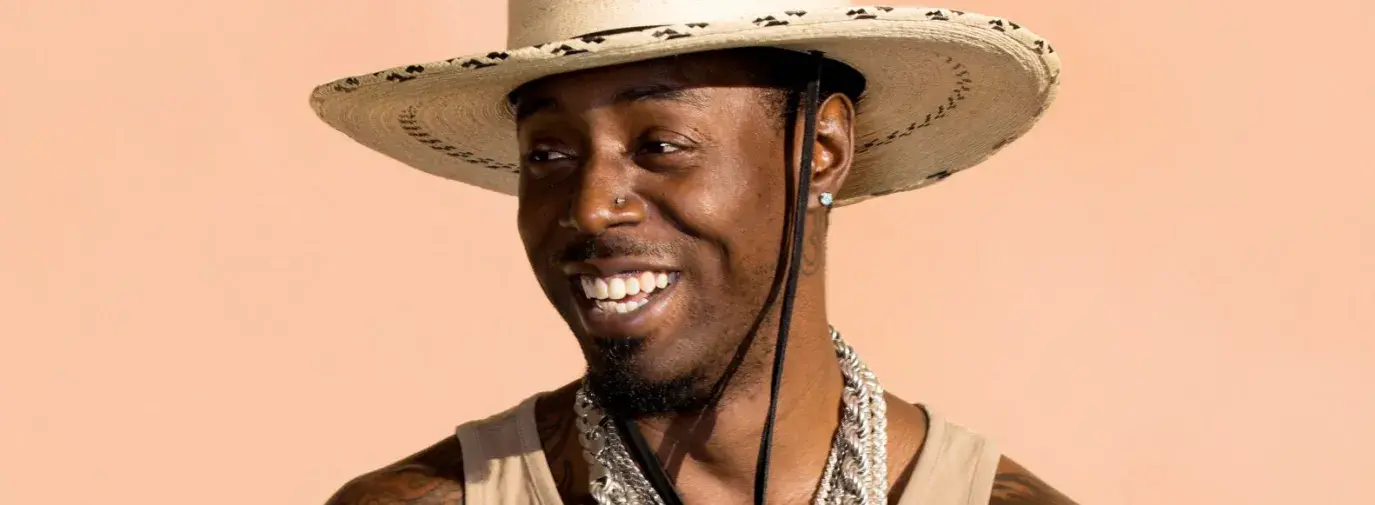
The United States is a country of dichotomies. Few things illustrate this better than access to healthy food. Take for example the affluent city of Beverly Hills, which boasts nine supermarkets that serve its 32,000 residents. By contrast, 30,000 residents of Detroit, Michigan, lack access to even one grocery store with fresh food. Instead, heavily processed, pesticide-laden foods line the shelves of neighborhood convenience stores.
Because politicians have historically done little to address this disparity, community organizers invest their time and money, and have an army of volunteers to provide their communities (mostly of color) organic food at affordable prices. But what is access to fresh produce without an understanding of good nutrition? One Denver native figured out a clever way to use music to explain what healthy eating looks like.
Ietef Vita was raised in the Five Points neighborhood of Denver. Before the gentrification of the last decade, Five Points was home to mostly lower-income Black families.
“We didn’t have the Boy Scouts, we had gangs, so I became a gang-banging Crip,” Vita explains. “A lot of my friends ended up in the youth penitentiary, which was two blocks from my high school. Five Points was a prison town kind of vibe.”
How Vita went from a processed-food eating gang banger to becoming a yoga-loving, meditating vegan, rapping about greens and organic farming is simple.
“I owe it all to my mother,” he says.
Two things happened during Vita’s adolescence that served as the inspiration behind his lyrics about healthy eating. While working as a curator for the Denver Film Festival, his mother put herself in debt to pay for Vita and his brother to visit Burkina Faso for the Pan-African Film & TV Festival of Ouagadougou.
“As I walked through the port at Gorée Island in Senegal, I thought I was something special in my gang colors. Back then, I didn’t understand this was the largest slave-trading post back in the day,” recalls Vita. “Seeing where my people originated and the brutality they faced there and once they arrived in the new world, forced me to examine my life and the contributions I wanted to give humanity. I felt called upon to make a difference.”
Upon his return from West Africa, his mother gave him a package of tofu. While this may not seem out of the ordinary to those with limitless food options, for a gang banger from the “hood” without access to a supermarket, for Vita, it was more evidence to answer the call.
“At first I was the only tofu-eating, vegan gang banger, which provided the punchline for many jokes, but for me it was about self-reflection. Did I want to be part of the problem or provide a solution?”
Vita not only quit gang life, but he began studying Indigenous agronomy and permaculture, and started writing.
Using Eco Hip-Hop to Promote Healthy Eating
Vita, known professionally as DJ Cavem Moetavation, created a subgenre of rap he calls Eco Hip-Hop.
“My songs are about sustainable agriculture, but there’s more to my lyrics. Apart from police brutality, the Black community has multiple issues that aren’t being addressed in Hip-Hop.
“The same way Public Enemy, Tupac Shakur, N.W.A., and other prominent Old School rappers brought this consciousness to the mainstream, my mission is to expose the health crisis people of color face everyday. My albums have seeds with growing instructions. I got the USDA to certify them, enabling me to get them into schools. I’m also working with the WIC program. My songs provide context for all of this.”
Vita’s wife, Alkemia Earth, is a certified master energy healer who appears in most of his videos. “It may seem corny to tell people that you write rhymes about vegetables, but absent the lyrics, his music is modern-day rap,” known as Trap. “Nothing makes his day more than to hear a kid rapping about broccoli, collard greens, and kale,” she says.

Photo by Jeff Nelson.
Roger James, of Aurora, Colorado, is one of those young people. James is a recording engineer with Atlantic Records.
“I met Ietef when I was in middle school in Five Points. He came to our school and organized rehearsals, taught us about healthy eating, and provided venues for me to perform and get comfortable presenting my art to the world,” James says. “He definitely impacted my life a great deal when it comes to music and growing organic food.”
Ten years after their first meeting, James returned the favor by arranging and producing Vita’s latest album. Koncrete Garden is an EP with eight songs that sprinkle in issues that impact the Black community with more rhymes about vegetables. In the song “I’m on the Move” Vita describes a day in the life at Mo' Betta Green Marketplace, the farmers market where he serves on the board.
7 am at the market
Washing that kale and I park it
I got that cabbage on low
I got that spinach on low
I got tomatoes on low
I got that garlic on roast
About Vita’s influence on young people, Shane Wright, the development director of the Denver nonprofit organization Lincoln Hills Cares, concurs.
“Vita is a fixture, father figure, and feature in Denver’s community-based environmental movement. Not only does his music represent Denver, but he shows up for the youth. When he’s not touring, you can find him juicing greens from his own garden at the farmers market.”
Respect for the Founder of Eco Hip-Hop
Today the gang-banger-turned-musician has garnered respect from the music industry. Chuck D, front man for Public Enemy (known for their politically-charged songs like “Fight the Power” and “Can’t Truss It”), is Vita’s mentor. “DJ Cavem’s music will propel us as humans. Spirit energy and fuel define his mantra. He is a gift from beyond to listen, watch, feel and emulate for generations to follow.”
Todd Thomas, known professionally as Speech, is a founding member of the group Arrested Development. He calls Vita, “Always dope, always authentic and a “back-to-earth visionary.”
It’s a Koncrete Garden Out There
Disparities in food access—to quality affordable foods in grocery stores—affects 11.8% of the US population, according to 2020 data from Feeding America, but doesn’t consider the pandemic, which increased food insecurity. People of color are likelier to live in those food insecure areas, which is part of the reason why Vita finds it so important to educate those in his community about growing foods, provide food access through community gardens and events, and teach about how healthy food, when it is accessible, can be fun and tasty.
Vita brings it all full circle. “As good health continues to elude most Americans, I will continue writing music to bring back ancient wisdom to address current problems. And I owe it all to my mother.”
Sarah Ratliff is the co-author of Being Biracial: Where Our Secret Worlds Collide, an anthology of essays exploring mixed-race identity. Her main topics of interest are Puerto Rico, cannabis, natural healing, race and gender, politics, STEM, and sustainable agriculture.







